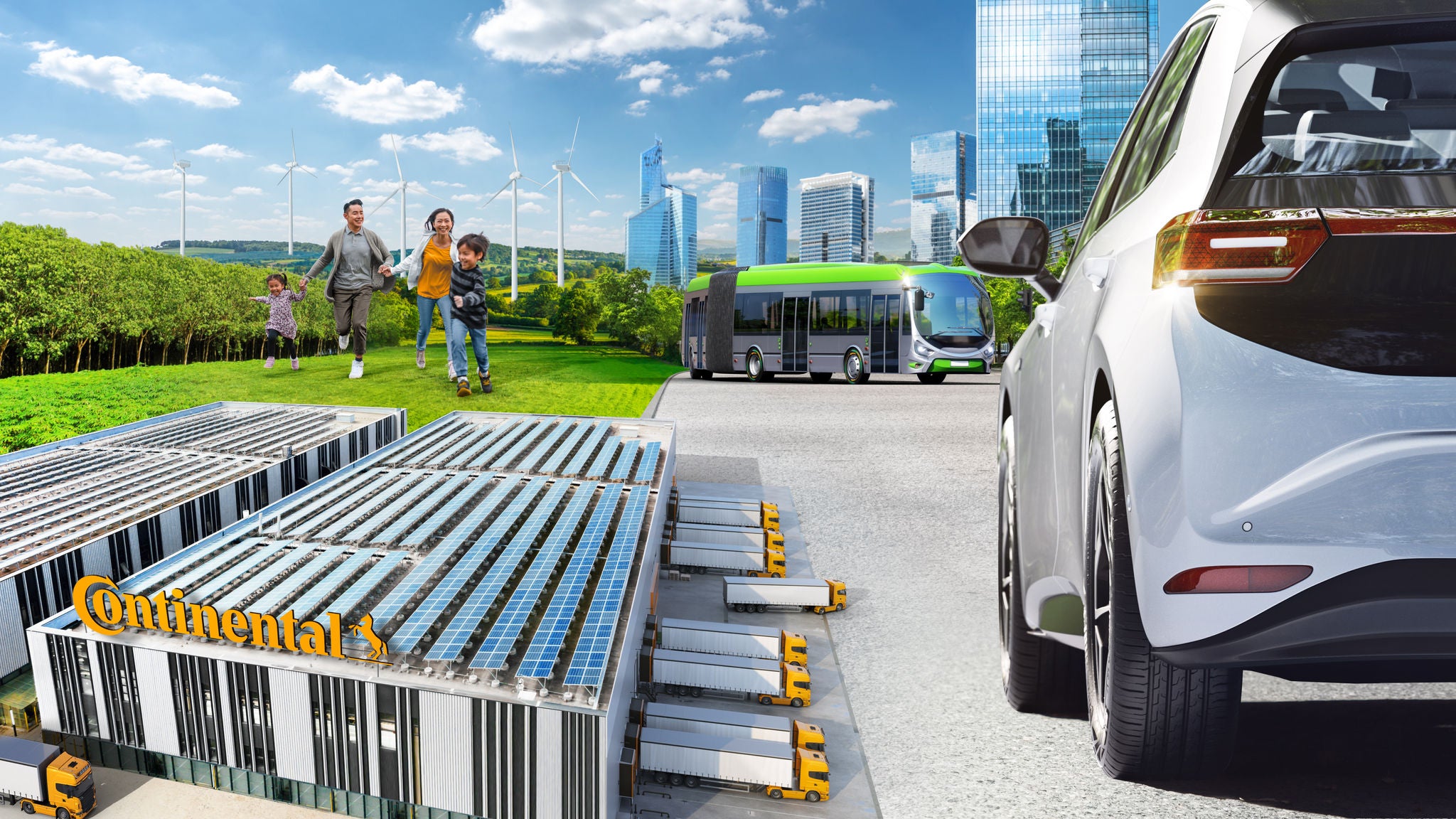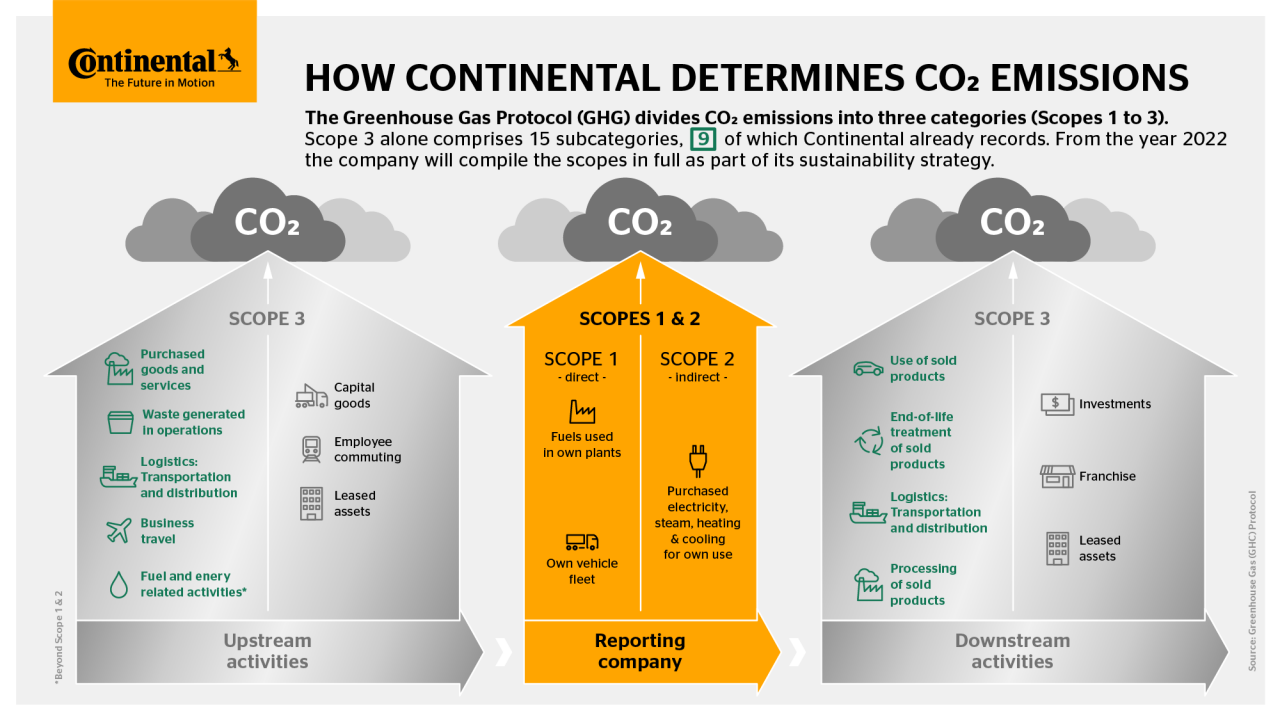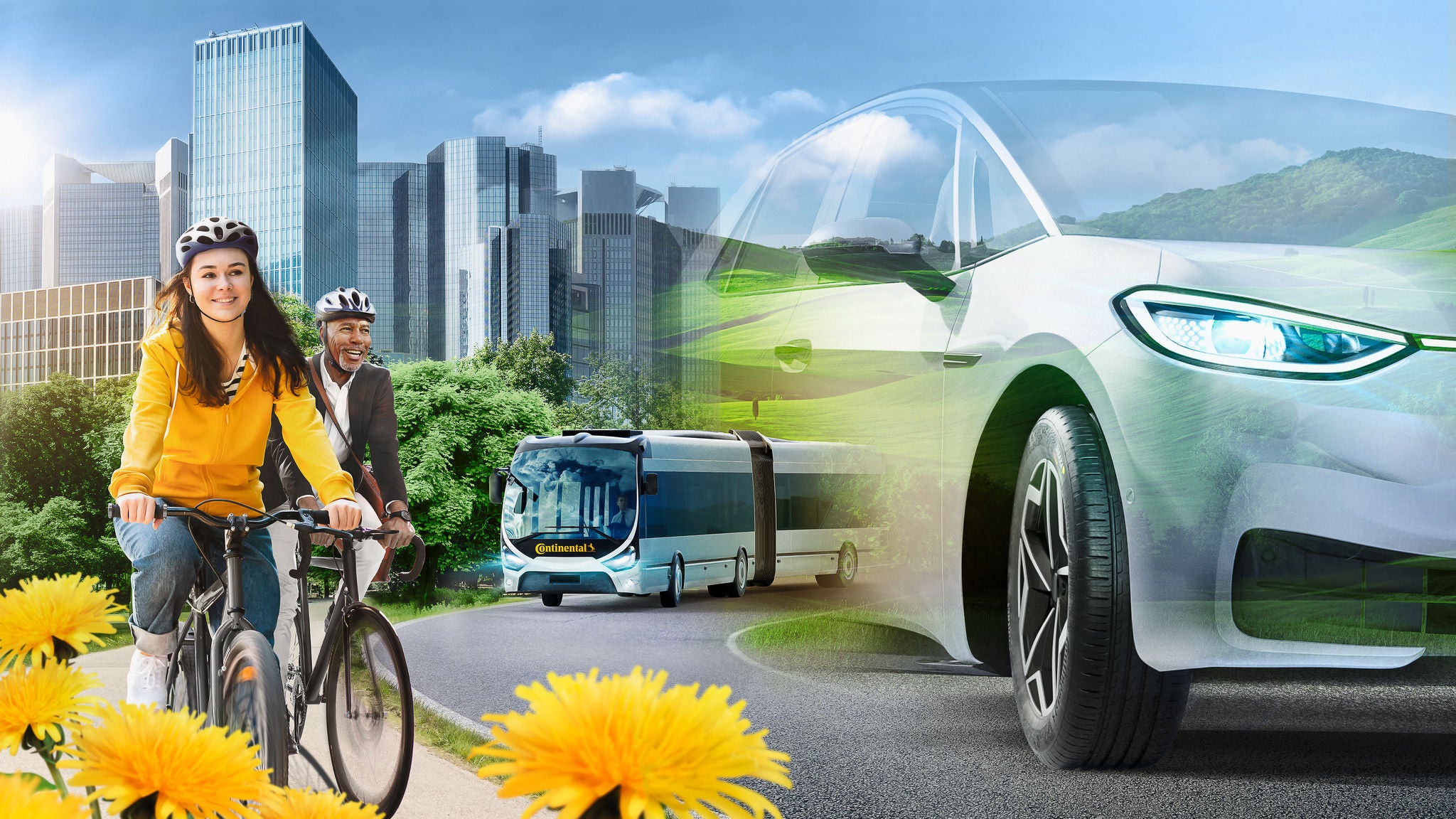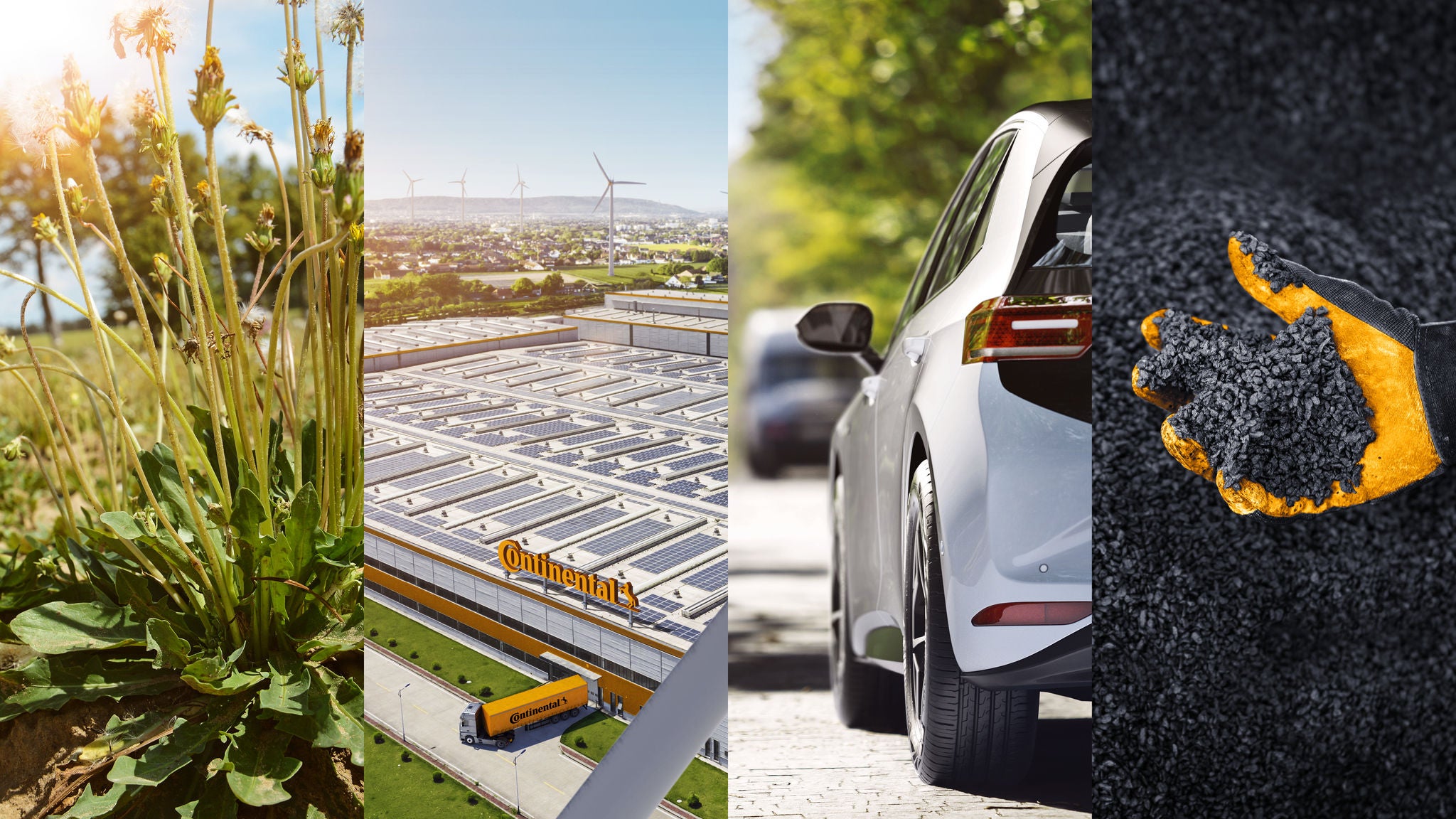Visit Continental Tires in your country for local vehicle fitment
Sustainability
Carbon Neutrality

Continental is committed to the Paris Agreement of 2015. According to this, global warming is to be significantly lower than 2 degrees Celsius compared to the pre-industrial age or, ideally, be limited to 1.5 degrees. To achieve this, we are working on a holistic approach along the entire value chain. As a group sector, we are contributing to the implementation of those projects.
Since 2022, Continental fully records its emissions and sets itself science-based reduction targets. The carbon emissions generated along the value chain can be divided into three categories: Scope 1, Scope 2, and Scope 3.

Carbon Emissions in Three Categories
Scope 1 encompasses emissions caused directly by the company, such as those produced in manufacturing. The Tires Group Sector is already an industry leader in the efficient and sustainable management of water and energy. Continental consumes 55 percent less water and 17 percent less energy than the industry average per metric ton of tires produced. By 2030, the aim is to have saved an additional 20 percent. To minimize transmission losses, we intend to generate more renewable energy on site at our tire production facilities. We already operate our own solar installations at several of our factories worldwide.
Scope 2 involves measuring emissions that occur indirectly, such as through purchased electricity. The electricity that Continental obtains from the grid and purchase for its tire production facilities worldwide has been carbon neutral since late 2020. To prove this, we secure energy attribute certificates in accordance with the criteria of the RE100 initiative. The next step will be to discontinue the use of coal and heavy oil by 2025. We will be using sustainable zero-carbon technologies to generate energy at all production sites worldwide by 2040.
Scope 3
Scope 3 defines downstream emissions. This category includes emissions produced during the use of our tires or by recycling at the end of a tire’s life cycle, for example. We are working on a circular economy to reduce these emissions. This means that we are developing innovative methods to enable material to be recovered, recycled and re-used.
We have been setting new standards with our ContiLifeCycle factory since 2013. The plant in Hanover combines tire recycling and retreading under one roof. We are also working with partners to develop highly efficient cutting-edge pyrolysis processes to allow us to recover valuable materials and high-performance raw materials from old tires for new tires in the future.
In late 2020, the independent Science Based Targets Initiative (SBTi) conducted a scientific examination of Continental’s climate change mitigation targets and confirmed that Continental is demonstrably helping to achieve the targets of the Paris Agreement on climate change.
Reducing Emissions
Continental is striving for 100 percent carbon neutrality along the entire value chain. To achieve this ambitious goal, we have set ourselves three milestones:
- Since the end of 2020, all electricity purchased for our production sites worldwide has been switched to green electricity and is already carbon neutral.
- By 2040, the production of all Continental tires will be carbon-neutral. This includes Scope 1 and Scope 2 emissions.
- By 2050 at the latest, our entire value chain will be carbon neutral - from material sourcing through production to recycling by the end of a tire's life cycle. This includes Scope 1, Scope 2 and Scope 3 emissions.
Read More About Continentals Commitment
Continental has adopted a comprehensive framework for sustainability.

